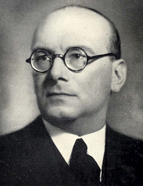

And so it was that Veiga Simões' eclecticism found its way into a wide range of magazines, both critical and literary in nature, edited by himself, sometimes by others No Circo [At the Circus], 1906, Serões [Evenings], 2nd series, 1909, A Farça [The Farce], 1909-1910, A Águia [The Eagle], 1st series, 1910-1911 and 2nd series, 1912, e A Rajada, 1912 —, or by genres as different as the short stories, essays, memoirs and theatre — Nitockris, 1908, A Nova Geração. Estudo sobre as tendências actuais da literatura portuguesa [The New Generation. Study on current trends in Portuguese literature], 1911, Elegia da Lenda. Livro das Saudades [Elegy of the Legend. Book on Longing], 1912, and Sombras [Shadows], 1912. Always with independence. Genius, his admirers would say. Arrogance, critics would argue.
Even before completing his bachelor's degree, he travelled to London, where he worked as an attaché at the Portuguese legation. Between June and September 1911. Through Teófilo Braga. With the consent of Bernardino Machado. The Republic's first foreign minister. The regime he had always fought for. Because, above all, he was a republican. After graduating in November 1911, he established himself as a lawyer in Arganil. More to satisfy his parents than out of personal vocation. Disagreeing with the direction of Afonso Costa's politics, he left the Portuguese Republican Party. Identifying with António José de Almeida's proposals, he aligned himself with the Republican Evolutionist Party. He opposed the former and supported the latter through the press. In his hometown, through opinion pieces in the columns of newspaper A Comarca de Arganil, and in 1913, in the Jornal de Arganil, which he founded and led between 1913 and 1915, in Coimbra, in the Diário de Coimbra, where he was "editor-in-chief" in 1913, and finally, in Lisbon, in the República, where he served as "political editor" between 1913 and 1915. Disillusioned with evolutionism, he withdrew from politics. Despite having founded and led another newspaper, Correio de Arganil, he had already adopted an independent character. Through the competition for third legation secretaries, third-class consuls, and third officers held in 1915, he managed to join the ranks of the Ministry of Foreign Affairs. Where he would remain for thirty-one years. With many moments of glory. And no less discomfort. Starting as a third-class consul, he was posted to Manaus. He left in 1916, already married to Maria Antónia de Campos Amaral, the daughter of wealthy merchants in Brazil. His performance earned him a promotion to second-class consul and a subsequent posting to Pará in 1918. Although he did not end up occupying this post, his closest superiors continued to favour him, elevating him to the top of the consular career ladder and posting him to Christiania (Oslo) in 1919. His qualities, particularly in handling economic matters, were under-utilised in purely consular work, and he would have been better suited to a diplomatic career. It was therefore no surprise that he was promoted to Minister Plenipotentiary, 2nd Class, and posted to Vienna in 1921. He was invited by Manuel Maria Coelho, the leader of the infamous 19 October coup, to become Foreign Minister later that same year. That’s what those who trusted him believed. And what those who distanced themselves from him lamented. He took on his position with determination. He was committed to fundamentally reforming the Ministry, equipping it with the necessary mechanisms to make it the "stabilising force in the economy". He accomplished this in just fifty-nine days, through the Decree of 12 December 1921. Just before his thirty-third birthday.
This work is financed by national funds through FCT - Foundation for Science and Technology, I.P, in the scope of the projects UIDB/04311/2020 and UIDP/04311/2020.
